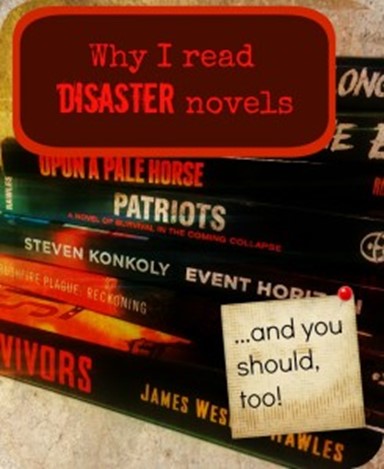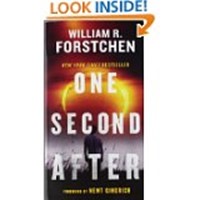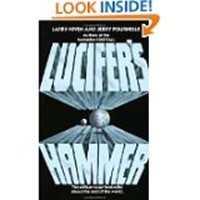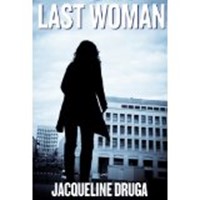
When I was a kid, I was a voracious reader. I read a novel a day and if I couldn’t find something new to read, I would read a book over again. The variety of genres and subjects I read were all over the place and I have gone through phases of reading only mystery or only non-fiction.
While I have recently been on a fantasy/fiction kick (HONOR HARRINGTON SERIES, anyone?), I have also been reading books that deal with some country or world-changing scenario and follow people as they try to survive. I call them “disaster books” for lack of a better term. I suppose they could be called apocalyptic books, or SHTF books, or survivor books. “Dystopian” is the most recent popular term for them. Whatever you call them, these books have a value that many people do not recognize.
With all of the kinds of stories and different perspectives I have read about in my life, I have a great imagination and can put myself into pretty much any role and understand why the character would think, or feel, or act in certain ways. Even the ‘bad guys.’ The entertainment value and escapism is wonderful, of course, but the fact that it enriched my way of thinking and increased my ability to see both sides of the story is far more important. It has allowed me to adapt to odd situations more easily and handle emergencies with calm focus (I tend to ‘freak out’ after it is all over, haha!) and that is vitally important in disaster situations.
Disaster Novels (Dystopian Literature)
With the overall shift of our lifestyle, enter my interest in disaster stories. Stories depicting an EMP taking out the electrical grid in our country

or a meteor hitting the planet and sending tidal waves across the oceans, helps the reader visualize and consider things what they would do and need to counter such an event.
By reading books that present these scenarios in a non-threatening way (it’s just a story, right?), readers can safely get caught up in the emotions and truly contemplate how they would feel, react, and respond. It is easy to judge characters’ decisions while you are safe and secure in your home reading. If you apply what they are going through to your own situation and how it would truly affect you, the realizations may be huge (as in you are NOT prepared at all) or they may simply reaffirm that you have been on the right track for years.
For me, reading these types of books has opened my eyes to areas in which I need to improve or things that I have overkilled. They give great conversation material with your spouse or group on how you would collectively respond. They can expose areas you all need to address to be better equipped to overcome a disaster.
The largest and most valuable side to reading this particular genre of book, though, is the mental aspect of. Reading these books help to expose your mind to these unlikely (but possible) scenarios. If you take it a step further and form a plan in your mind or go all out to improve your chances, you are ahead of the game so far that you have lapped the people on the couch twice already.
One of the biggest skills we can learn as preppers or self-sufficient people is how to react when sudden and unexpected events occur. We have to mentally train our minds to react instead of freeze up. It is my strong belief that reading some of these types of books and really letting yourself get caught up in them will help on that path.
There are dozens of books like this on Kindle and Nook that are usually $3 or less – many are free. Some aren’t the best story or written very well, so choose at your own risk. Reader reviews and rankings can be helpful, if you read them. When a book doesn’t have many reviews, a single person who rates it as one star because they hated the hero(ine)’s name (or five stars because they loved the cover) can seriously skew the results, so it’s worth taking the extra minute. Also, an outstanding book may have only a few reviews if it is new or poorly marketed.
Here are some of the books I have read recently that are not only well done, they can really make you think:
- One Second After, by William R. Forstchen
- Last Woman, by Jaqueline Druga
- Lucifer’s Hammer, byLarry Niven and Jerry Pournell
- 299 Days Series, by Glen Tate
Other books that are recommended:
- Alas, Babylon by Pat Frank
- Collapse by Richard Stephenson
- Land: A Stranded Novel by Theresa Shaver (review here)
- Lights Out by David Crawford
- The End by G. Michael Hopf
- The Jakarta Pandemic by Steven Konkoly (reviewed here)
Survival Books for Your Collection
Here are the books I recommend for every bookshelf, along with Amazon links so you can read more about them, including reader’s reviews.
Wake Up, People! : Books for motivating you to prepare
One Second After by William Forstchen
Patriots by James Wesley Rawles
299 Days Series, by Glen Tate
Last Light by Terri Blackstock
Lights Out by David Crawford
Stacey’s Quest by AK Steele
The Night the Lights Went Out, by John Eider
Back Across The Pond, by Susan Gregersen
A Tale of Two Preppers, by Susan Gregersen
The Rally point: Bugging Home, by Susan Gregersen
77 Days in September, by Ray Gorham
Mental Preparedness
Deep Survival by Laurence Gonzalez
The Gift of Fear by Gavin de Becker
The Survivors Club by Ben Sherwood
The Unthinkable by Amanda Ripley
Wilderness and Outdoor Survival
Bug Out: The Complete Plan for Escaping a Catastrophic Disaster Before it’s too Late by Scott B. Williams
Survive! Essential Skills and Tactics to Get You Out of Anywhere – Alive by Les Stroud
Will to Live by Les Stroud
TEOTWAWKI Survival
The Backyard Homesteadby Carleen Madigan
Build the Perfect Bug Out Bag by Creek Stewart
Crisis Preparedness Handbook by Jack A. Spigarelli
Dirt-Cheap Survival Retreat by M.D. Creekmore
The Doom and Bloom Survival Medicine Handbook by Joseph and Amy Alton
The Encyclopedia of Country Living by Carla Emery
Gardening When it Counts by Steve Solomon
How to Survive the End of the World as we Know it by James Wesley Rawles
LDS Preparedness Manual (free download)
The Modern Survival Manual by Fernando Aguirre
The Prepper’s Pocket Guide by Bernie Carr
Prescription for Herbal Healing by Phyllis A. Balch
When all Hell Breaks Loose, by Cody Lundin
When There is no Doctor by David Werner
Where There is no Dentist by Murray Dickson
Food Storage and Preservation
Ball Complete Book of Home Preserving by Judi Kingry
Cookin with Home Storage by Peggy Layton & Vicki Tate
Dinner is in the Jar by Kathy Clark
Food Storage 101 by Peggy Layton
Mary Bell’s Complete Dehydrator Cookbook by Mary Bell
Poverty Prepping: How to Stock up For Tomorrow When You Can’t Afford To Eat Today , by Susan Gregersen
Here’s a link to the Survival Mom’s book, Survival Mom: How to Prepare Your Family for Everyday Disasters and Worst Case Scenarios.
Start now to make sure you are staying prepared.
Via: thesurvivalmom






 Follow
Follow
Leave a Reply